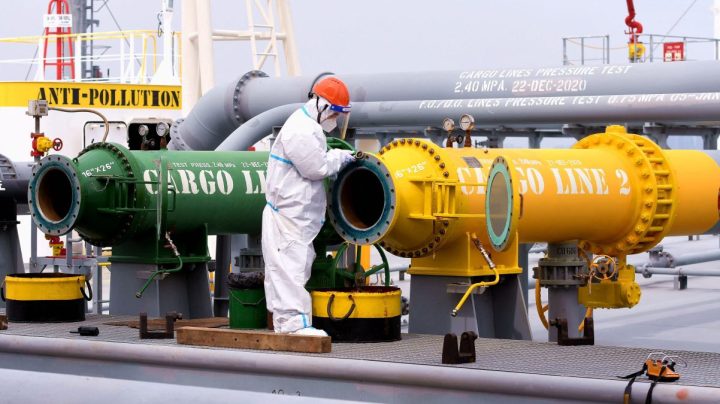
Oil demand is steady, but now OPEC+ is cutting supply

The global oil market got a big jolt over the weekend. The oil producers’ cartel, OPEC+, announced that it’ll cut production by over 1 million barrels a day starting next month. With tighter supply looming, oil prices rose.
But demand for oil is also a factor in the market, and it’s widely expected to grow this year.
“It’s just the rate of that growth that is in question,” said Matt Smith at data and analytics firm Kpler. He said much of that question comes down to China, the world’s biggest oil importer. As its economy has reopened, China’s been buying more oil, but not much more, according to Smith.
“People were expecting multiple millions of barrels per day of demand growth coming through from them, and we’re just not seeing that,” he said.
Rising interest rates in the U.S. and Europe could also affect oil demand, said Tom Seng, who teaches courses about the energy industry at Texas Christian University.
“And that is the other side of this coin: fears of potential recession,” he said.
So, if U.S. and European consumers demand less oil, could growth in China bail the market out? Sara Vakhshouri, founder of SVB Energy International, said no.
“Chinese recovery and return to the market is not going to add that much demand to offset economic slowdown in U.S. and Europe,” she said.
OPEC members have an incentive to boost prices since their economies depend on oil revenue. But Amy Myers Jaffe, who teaches the geopolitics of energy at New York University, said they can’t raise them too much.
“This trade-off between what kind of oil price does an individual nation need if they’re an oil-exporting nation, and the level at which the global price needs to be to prevent a shaky economy,” she said. “There’s a conflict between those two sets of numbers.”
In other words, if oil prices rise more, a recession’s even more likely.
Correction (April 4, 2023): A previous version of this story misspelled Sara Vakhshouri’s name.
There’s a lot happening in the world. Through it all, Marketplace is here for you.
You rely on Marketplace to break down the world’s events and tell you how it affects you in a fact-based, approachable way. We rely on your financial support to keep making that possible.
Your donation today powers the independent journalism that you rely on. For just $5/month, you can help sustain Marketplace so we can keep reporting on the things that matter to you.

















